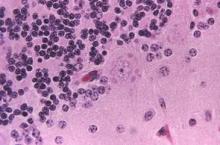A Maryland man recently died of rabies more than a year after receiving an infected organ in a transplant, according to the Centers for Disease Control and Prevention.
Officials at the CDC and the Maryland Department of Health and Mental Hygiene confirmed that the man died from rabies contracted through an organ transplant performed in 2011. After an investigation found that the Maryland man had no reported animal exposures, health officials began looking into the possibility that the infection was transmitted during his transplant.
Tissue testing of the organ donor and recipient revealed that they both had a raccoon type of rabies virus, which can infect raccoons as well as other wild and domestic animals. Only one other person is reported to have died from a raccoon-type rabies virus in the United States, according to the CDC.
Three other people who received organs from the infected donor have been identified and are receiving immune globulin and antirabies vaccination. In addition, the CDC is working with health officials in Florida, Georgia, Illinois, Maryland, and North Carolina to identify anyone who was in close contact with either the initial organ donor or the four recipients since they may also need postexposure rabies treatment.
At the time of the organ donor’s death in 2011, rabies was not suspected as the cause. Investigators are still trying to piece together how the donor first contracted rabies.
Although all potential organ donors in the United States are screened for infectious diseases such as HIV and hepatitis, rabies is not part of the standard screening process. The CDC estimates that there are only one to three cases of human rabies diagnosed each year in the United States. Because cases are so rare, screening for rabies is not routinely performed unless it is suspected based on interviews with family and friends or a physical examination, according to the CDC.

